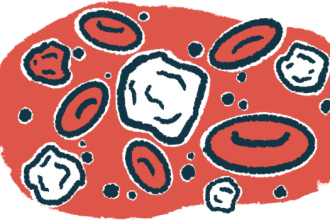Creatine supplements have traditionally been the go-to for athletes and bodybuilders aiming to enhance their performance and boost muscle mass. However, a surprising new trend shows a rapidly expanding market: middle-aged women.
Dwayne “The Rock” Johnson continues to add creatine to his protein shakes to “put on size,” while Ivanka Trump shared earlier this year that she incorporates a dose into her morning smoothie. Across social media platforms like TikTok and among health experts, this chalky powder is increasingly being recognized for its potential benefits for women. But what exactly is creatine, and is there scientific evidence to support its rising popularity?
“Creatine is a natural compound derived from three amino acids—arginine, glycine, and methionine,” explains Dr. Rupa Parmar, a physician and Director at Midland Health. “It’s primarily stored in our muscles, where it aids in energy production.” While small amounts can be obtained from foods such as red meat and fish, the body also synthesizes approximately one gram of creatine daily.
Dr. Parmar notes that most women do not meet the recommended intake of three to five grams per day through their diets, making supplementation beneficial. “Women generally have lower creatine stores compared to men and often consume less of it, so they may see greater benefits from creatine supplementation,” he adds.
Creatine’s journey into the mainstream began in 1992, when British athletes Linford Christie and Sally Gunnell, both advocates for its use, secured gold medals at the Barcelona Olympics. Following their success, fitness magazines dubbed creatine a “breakthrough,” with a 1998 article in Fortune magazine referring to it as “nature’s steroid,” while the Los Angeles Times boldly proclaimed it a “power powder.”
Initially celebrated for muscle enhancement and recovery, recent research indicates that creatine may offer additional benefits beyond athletics. Findings suggest that creatine may aid cognitive function, improve brain health, reduce symptoms of depression, and boost overall energy levels. “It can even support brain health, with studies indicating that it helps enhance cognitive function and offers some protective benefits as we age,” Dr. Parmar adds.
A preliminary study from the University of Kansas Medical Center highlighted creatine’s potential in improving memory and executive function among individuals with Alzheimer’s disease. Furthermore, creatine may help mitigate symptoms associated with hormonal fluctuations in women. “Creatine can alleviate fatigue during menstrual periods by maintaining stable energy levels, particularly when you’re feeling more exhausted,” Dr. Parmar explains.
Hormones such as estrogen and progesterone, which regulate the menstrual cycle, impact the body’s production and utilization of creatine. “Creatine levels can fluctuate during the menstrual cycle, and supplements may help stabilize energy and muscle function, especially during periods of low estrogen,” he continues.
For women approaching or experiencing menopause, creatine could be particularly beneficial by counteracting the typical declines in muscle mass, strength, and bone density, especially when combined with resistance training. A 12-month study revealed that creatine supplementation reduced bone mineral density loss among 47 postmenopausal women.
Despite its numerous potential advantages, creatine is not without its side effects. One of the most frequently reported issues is bloating, as creatine saturates the muscles and may cause water retention, potentially leading to a feeling of fullness and slight weight gain due to water weight. Nonetheless, studies have consistently confirmed that creatine is safe for most healthy adults when taken within recommended dosages.
As always, experts recommend consulting a healthcare provider before beginning any new supplement regimen, particularly for those with pre-existing kidney conditions or who are on medication.










